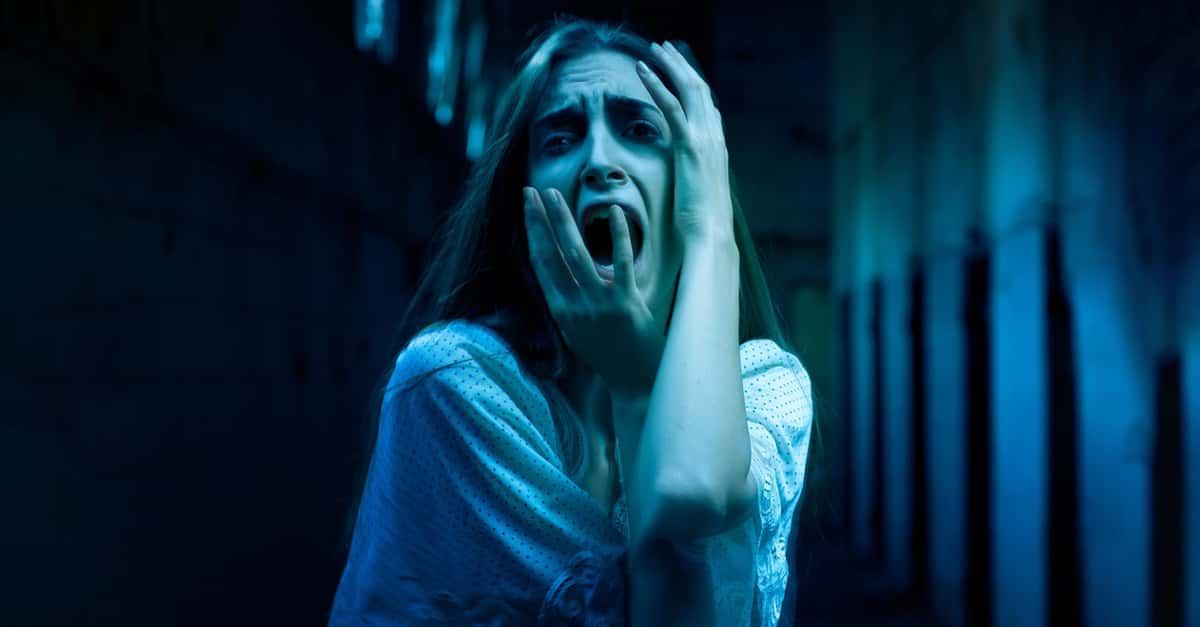It seems to come out of nowhere and involves one of the most excruciating pain sensations known to humans. Different people have different pain thresholds, but everyone who has ever suffered a kidney stone seems to unequivocally agree: it’s agonizing and unbearable. Although they generally affect men more than women, they can happen at almost any age—even to children. Even worse, people who’ve suffered from a kidney stone are likely to have another within ten years. So what causes them, and can they be prevented?
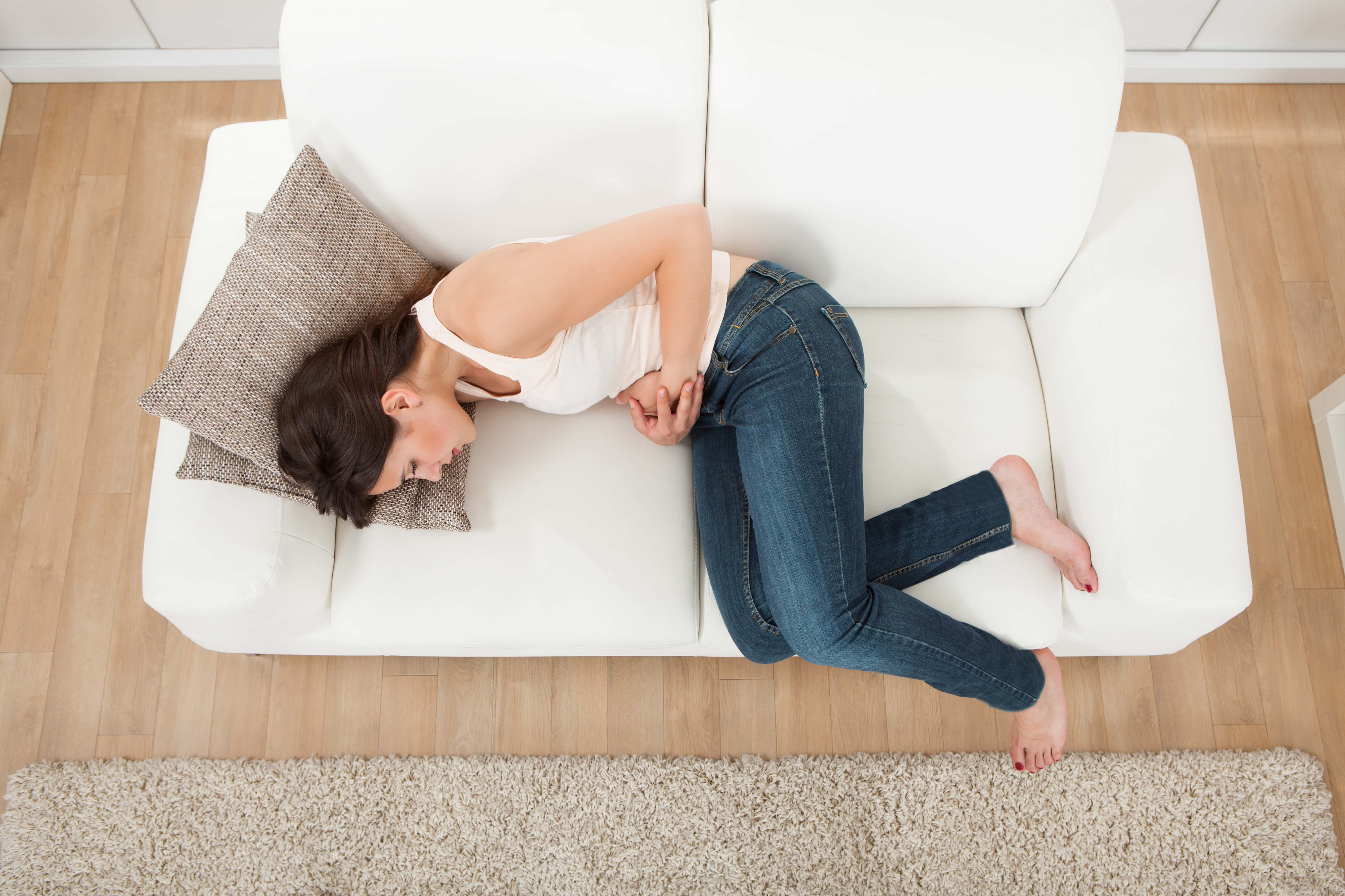 Shutterstock
Shutterstock
What Is a Kidney Stone?
To understand the cause, we need to talk about what exactly a kidney stone is in the first place. Kidney stones are the symptom of kidney stone disease, or urolithiasis. The stone itself is a piece of solid material composed of different materials. The most common type is made of calcium oxalate, and those stones are called calcium stones. Other types are uric acid stones (composed of uric acid with or without calcium), struvite stones (composed of magnesium, ammonium, and phosphate), and cystine stones (a rare type composed of cystine, a naturally occurring substance in the body).
The stones form in the kidneys before traveling down the urinary tract and leaving the body in the urine. People can pass the smallest stones (which can be as tiny as a grain of sand) without pain or notice, but larger stones (which can be the size of a pearl or larger) can block the urinary tract—causing all that aforementioned pain and discomfort, usually in the lower back or abdomen. It may also cause vomiting, painful urination, and blood in the urine.
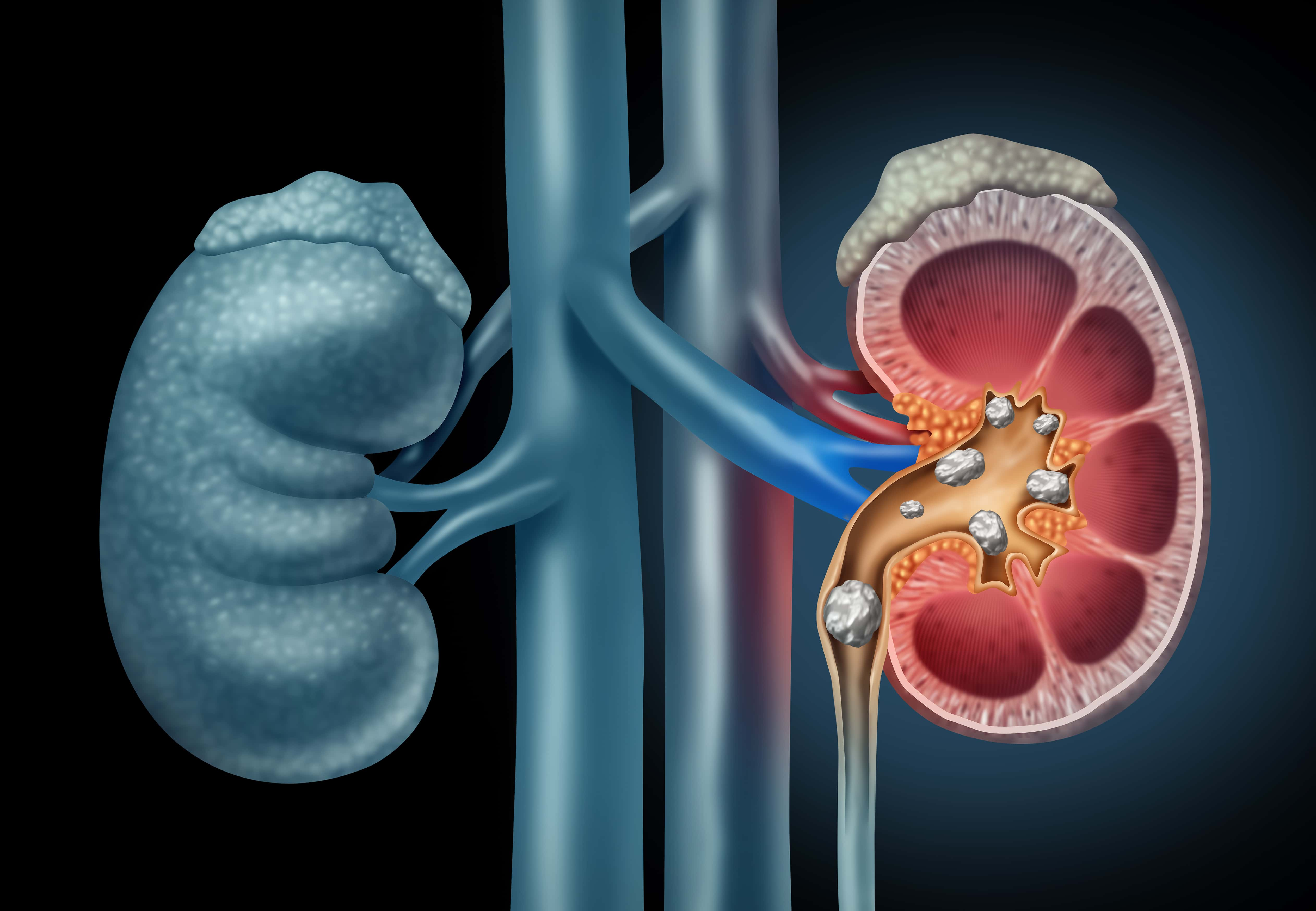 Shutterstock
Shutterstock
Why Do Kidney Stones Happen?
To make a long story short (or complicated issue simple), a combination of genetics and environmental factors cause kidney stones. What does that mean? Well, on the environmental side, two major factors that can contribute to the formation of kidney stones are obesity and dehydration (not from sickness—specifically from low intake of fluids). Some dietary sources in particular can contribute to kidney stones, including high intakes of animal protein, salt, and sugars. Grapefruit and apple juices may also be responsible for the formation of kidney stones.
Some pre-existing health issues, including Crohn’s disease, metabolic disorders, or medullary sponge kidney (a disorder of the kidney) may also be behind kidney stone disease. Although most kidney stones are composed of calcium, dietary calcium isn’t considered to be a factor in their formation. In fact, a diet low in calcium may actually be the culprit. However, some studies have shown that taking a calcium supplement may actually be a contributing factor, so it's hard to say for sure.
Many of the aforementioned dietary factors, like animal protein and sodium, don’t directly contribute to kidney stone formation. Instead, they increase the urinary extraction of calcium, causing kidney stones as a byproduct. Another factor which may lead to the same increased calcium extraction is the consumption of fluoridated tap water, although this hasn’t yet been proven.
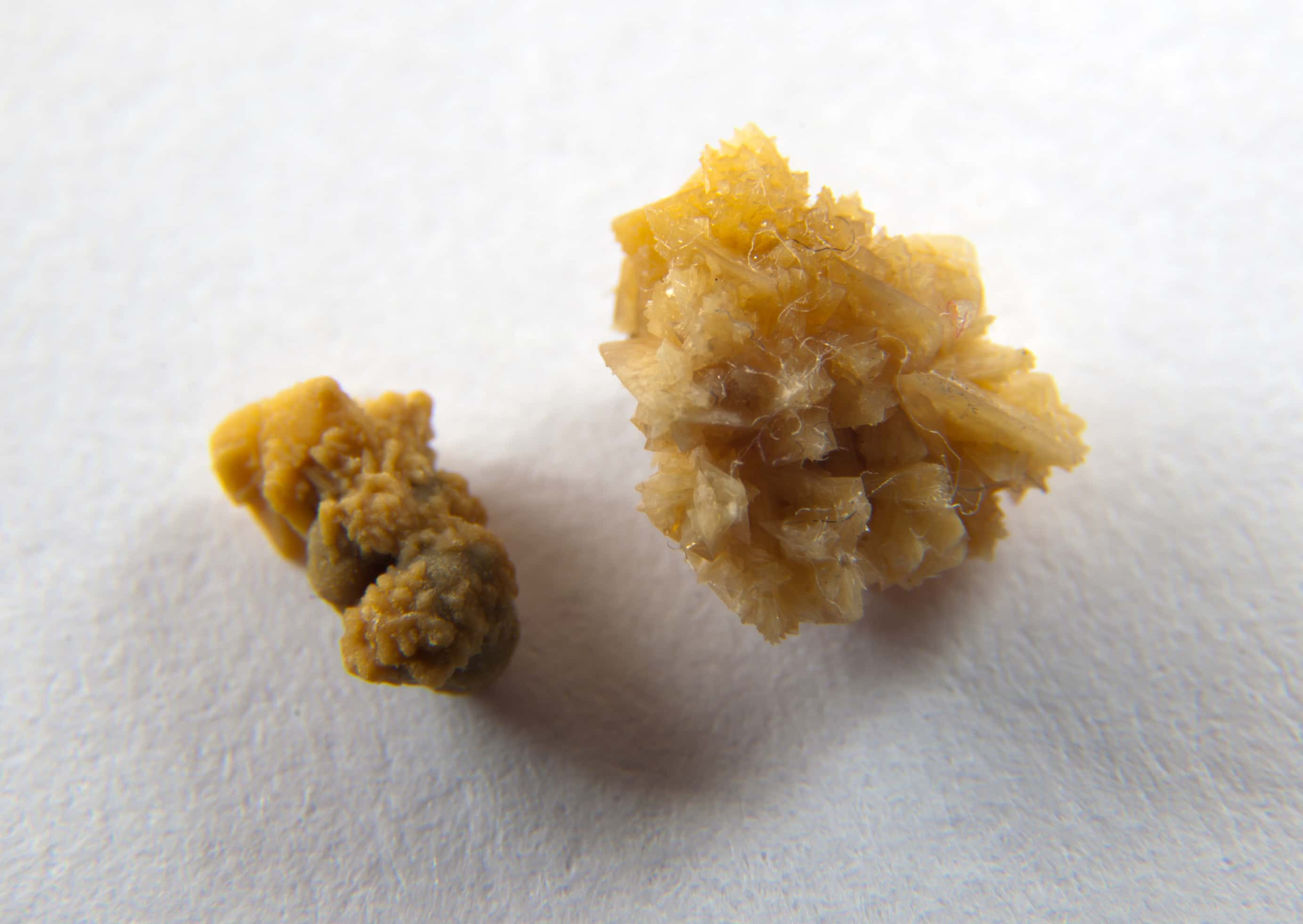 Shutterstock
Shutterstock

Sign up to our newsletter.
History’s most fascinating stories and darkest secrets, delivered to your inbox daily. Making distraction rewarding since 2017.
Who Is at Risk for Kidney Stones?
As mentioned in the introduction, men are more likely than women to get kidney stones—particularly, white men. The stones tend to reoccur, so if you’ve ever had them before, you're likely to get them again. Aside from the other common causes referenced above, there are other populations at risk for kidney stones. People who’ve had gastric bypass surgery, any cystic kidney disease, or people who suffer from conditions that involve swelling and irritation in the bowels or joints may be prone to kidney stones. Luckily, there are ways to tell if you have kidney stones—and to prevent them before they happen.
How Do You Know if You Have a Kidney Stone?
The telltale sign of a kidney stone that’s causing blockage is pain and discomfort in your lower back or abdomen. Kidney stones can also cause pain during urination, blood in the urine, nausea, and vomiting. People experiencing these symptoms should visit a doctor, who fill follow certain steps to diagnose a kidney stone. The doctor will do a physical examination, ask about medical or family history, and request a blood and/or urine sample for analysis. The physical examination will pinpoint the source of the pain, and the doctor may ask how it feels. Kidney stone pain usually comes in waves, so this can be key to diagnosis. Sometimes, CT scans or other forms of radiographic studies will be used for diagnosis.
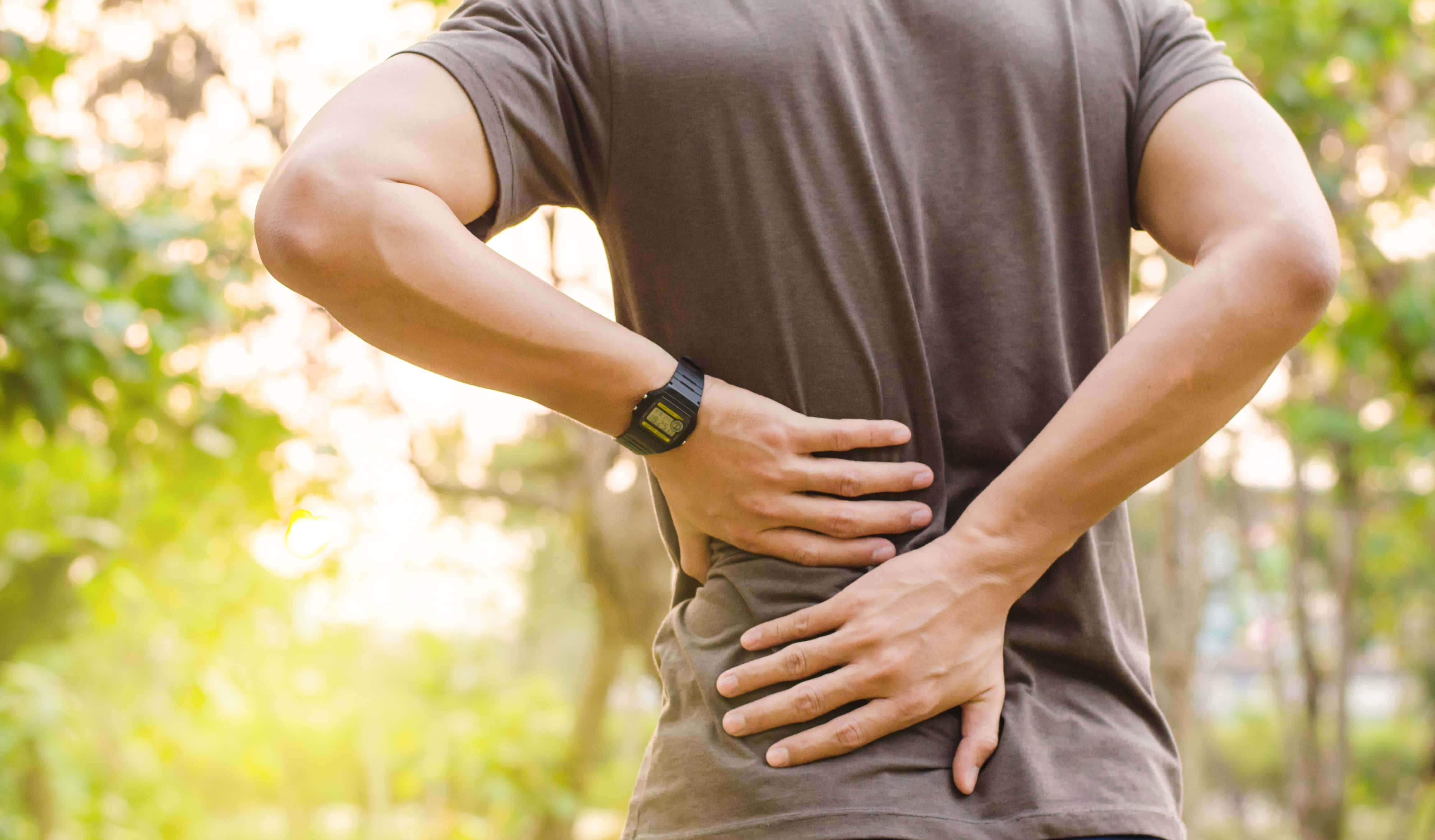 Shutterstock
Shutterstock
How Do You Treat Kidney Stones?
The treatment for kidney stones depends on their size. If the doctor thinks the stone is small enough to pass through the urinary tract, the patient may unfortunately have to grin and bear it—and to help the stone’s passage by drinking plenty of fluids. A doctor may recommend medication for pain management. There are also medications, like tamsulosin or nifedipine, that have been shown to have an effect on kidney stones.
Should the stone block the urinary tract or just be too large to pass naturally, other options would have to be explored. Generally, one of two procedures is used. The first, shock wave lithotripsy, involves using shock waves to break up the large kidney stone into smaller pieces that are easier to pass naturally afterward. The other is called ureteroscopy, where a tool is used to physically extract the stone if it's small enough. If it’s too large, the stone is first broken up by a laser and then removed with the same tool. General anesthesia is used for both procedures.
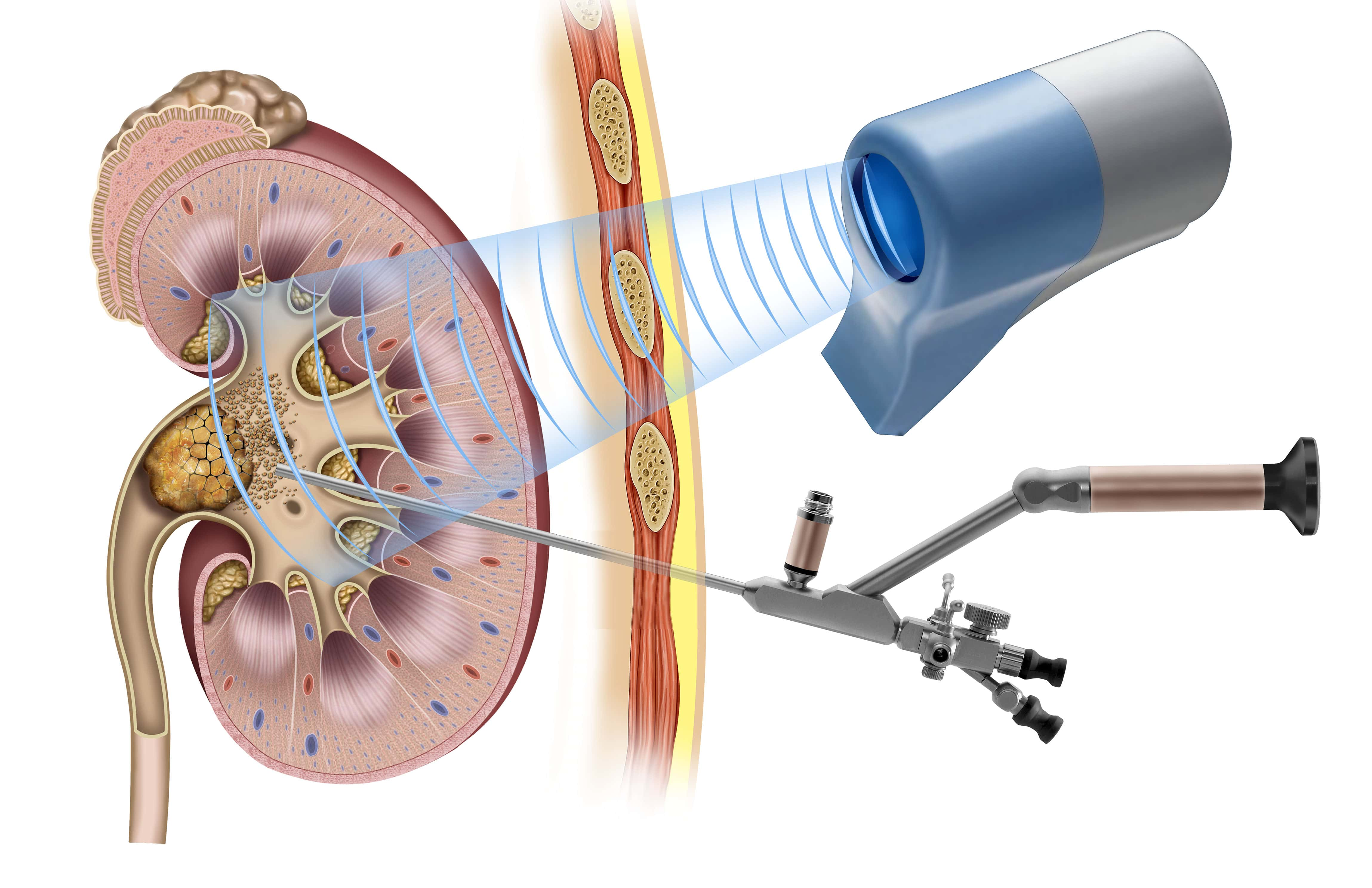 Shutterstock
Shutterstock
How Do You Prevent Kidney Stones?
While there’s not much you can do if you’re genetically disposed to kidney stones, since environmental factors can exacerbate the problem, there are methods and lifestyle changes that can help prevent kidney stones. The first—and luckily, easiest!—is to increase fluid intake. Some medications may help prevent kidney stones, including allopurinol, citrate, and the thiazide class of diuretics.
Dietary changes may help as well, like avoiding cola or sodium and reducing the amount of animal protein consumed. Maintaining alkaline urine will help prevent stones from forming, and some supplements and medications work well to do just that, including sodium bicarbonate, potassium citrate, magnesium citrate, and acetazolamide.
As Benjamin Franklin, a famous sufferer of kidney stones once said, “An ounce of prevention is worth a pound of cure.” So now that you know what causes kidney stones and how to prevent them—so fill up that water glass!





